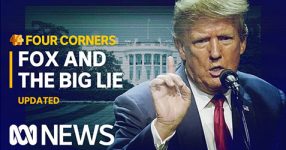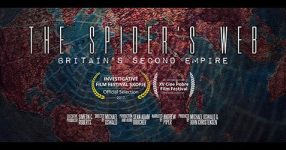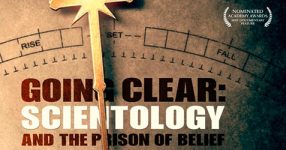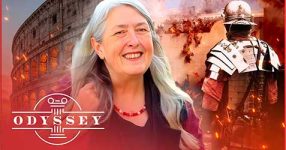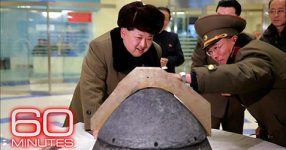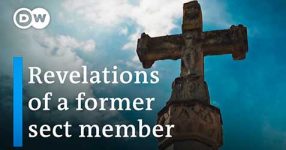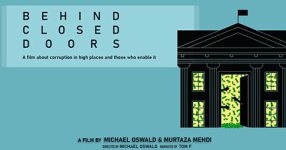In the realm of documentary films, “London Calling” stands as an eye-opening revelation that must be seen to be believed. This powerful exposé delves deep into the intricacies of BBC bias and the alleged manipulation of the Scottish independence referendum in 2014. As the documentary unfolds over a gripping 69 minutes, the involvement of this renowned broadcaster takes on a rather shady hue, leaving viewers astounded.
Unmasking the Veil of Secrecy
One of the glaring revelations presented in “London Calling” is the stark contrast in coverage between different regions of the United Kingdom. Many aspects of the Scottish independence referendum remained relatively unknown in England, Wales, and Northern Ireland due to variations in regional programming. This documentary effectively lifts the veil of secrecy, shedding light on the intricacies often concealed from the broader public.
Crowdfunding, Crowdsourced Truth
Initially funded through a crowdfunding campaign and screened at events across Scotland by pro-independence activists, “London Calling” made its online debut in late 2016. At its core, this documentary draws upon the research and insights of individuals like Craig Murray, a former British ambassador and a vocal critic of Britain’s foreign policy.
Murray’s career took a tumultuous turn when he raised concerns about MI6’s use of information obtained through torture during his tenure as ambassador to Uzbekistan. This background provides him with a unique perspective on the subject matter. Within the documentary, Murray points out that during the referendum campaign, BBC Scotland ran a striking 18 headlines that paired the words “independence” and “warning.” This frequency was anything but accidental, raising serious questions about the broadcaster’s objectivity.
Foreign Echoes of Dissent
The BBC’s alleged bias extended beyond its borders, as it cited Jean Asselborn, the Foreign Minister of Luxembourg, issuing strong warnings against Scottish independence. What makes this particularly intriguing is that Luxembourg, a much smaller independent nation, has achieved remarkable commercial success despite not possessing Scotland’s abundant natural resources. Astonishingly, the Luxembourg Embassy itself clarified that Asselborn’s statement was not one of opposition but rather a call for unity among member states. This instance highlights the complexity of the issue.
Powerful and Unveiling: London Calling
In its essence, “London Calling” is a powerful documentary that draws inspiration from GA Ponsonby’s book of the same name. This film exposes the spin, deceit, manipulation, and corruption allegedly perpetrated by the BBC during the two-year independence campaign. While some of the content may be familiar to those on the “Yes” side of the campaign, the documentary’s impact is undeniable. It encapsulates the narrative in a compelling manner, making it accessible to a broader audience.
The agenda to stifle Scottish independence persists, evident in every discussion on devolution, the Scottish economy, and independence since the referendum. The propaganda machine appears to be in full swing, with opposing voices accusing the pro-independence camp of obsessing over independence, ironically mirroring the very sentiment they condemn.
Media Bias: A Growing Chasm
The divide between objective news reporting and propaganda has become increasingly murky in recent years. Whether one consumes news online, in print, or on television, insidious media bias is apparent to audiences on both sides of the political spectrum. The presentation of alternative facts has sown widespread disillusionment and mistrust among viewers.
“London Calling,” based on GA Ponsonby’s book, recounts one glaring example of media bias – the BBC’s alleged role in undermining the 2014 Scottish independence referendum. The “Yes” campaign, despite gaining momentum, faced an uphill battle. The documentary provides a platform for key figures, media insiders, and ordinary voters to express their frustrations over both their electoral defeat and the lack of impartiality in the media.
The evidence in the film suggests that the bias went beyond mere perception, with the BBC featuring prominently. Critics point to a series of deceptive headlines and fear-inducing tactics that aimed to discourage a “Yes” vote. Moreover, the coverage was seen as unbalanced, failing to provide equal representation for both sides of the issue. The BBC seemingly evaded important questions, scandals, and controversies that marked the campaign for independence, while “Yes” campaigners faced character assassinations and negative reporting. The pro-union camp took center stage in programming, leaving little room for differing perspectives.
In their defense, the BBC asserts their adherence to strict ethical standards of impartiality. However, the damage has been done, eroding trust in media reporting. “London Calling” underscores the critical role of an impartial press that accurately represents the views of the people, highlighting the potential democratic catastrophes that can unfold in its absence.
“London Calling,” directed by Alan Knight, is a documentary that invites viewers to confront the troubling question of media bias. Its exploration of the BBC’s role in the 2014 Scottish independence referendum lays bare the challenges faced by the “Yes” campaign. While the battle for Scottish independence may have passed, the need for unbiased and balanced journalism remains as critical as ever. In a world awash with information, the call for truth and impartiality rings louder than ever, reminding us all of the pivotal role the media plays in shaping the future.

